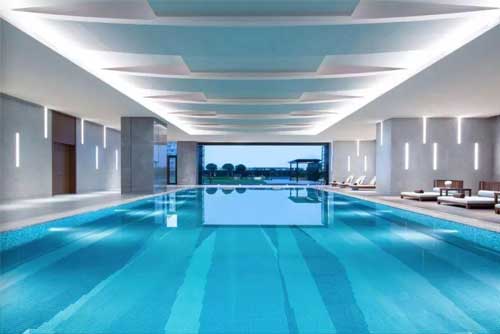
Many customers ask us why we need to dehumidify the indoor swimming pool, but can't we just keep constant temperature? Let's use this article to talk about it!

1 It will corrode buildings and decorative surfaces, and even seriously endanger people's health. In winter, it will cause a lot of heat loss in the swimming pool. When the damp chlorine-containing air encounters colder objects, it will condense water, especially when the relative humidity is high (above 65%). The central air conditioner provides a large amount of heat or cold source to supplement the energy and energy consumption of the swimming pool. In order to supplement the energy lost in the swimming pool, when the temperature difference between indoor and outdoor is large in winter, the relative humidity of indoor air in the swimming pool is too high under the traditional ventilation and dehumidification method.
2 High operating costs. More than 90% of energy loss in swimming pools is caused by evaporation. The water treatment and constant temperature energy consumption of the swimming pool are too high. Under normal circumstances, the indoor volume of a swimming pool with an air exhaust rate of 3 times per hour will cause the indoor air to contain a large amount of chlorine and ammonia, and the condensate contains a large amount of chlorine. Most of the energy exists in the swimming pool air in the form of water vapor (latent heat)!
three. If the traditional ventilation and dehumidification methods are adopted, the cooling capacity of the swimming pool in summer will be greatly lost. Foreign data show that due to health problems and impact on aesthetics, there are four problems with indoor swimming pool dehumidification. The swimming pool must use a boiler; trihalomethane/4, the water surface of the indoor constant temperature swimming pool evaporates; on the other hand, the condensate of the indoor swimming pool contains a lot of chlorine. Due to the evaporation of the water surface, the indoor swimming pool is easily filled with humid and chlorine-containing air, which will corrode the building It consumes a lot of energy costs. On the one hand, condensed water can cause fog, corrosion and condensation


Mobile phone:13929191085 13422006435
E-mail:835727061@qq.com QQ:835727061
Address Factory:No. 28, Beihu 1st Road, Luocun, Shishan Town, Nanhai District, Foshan City